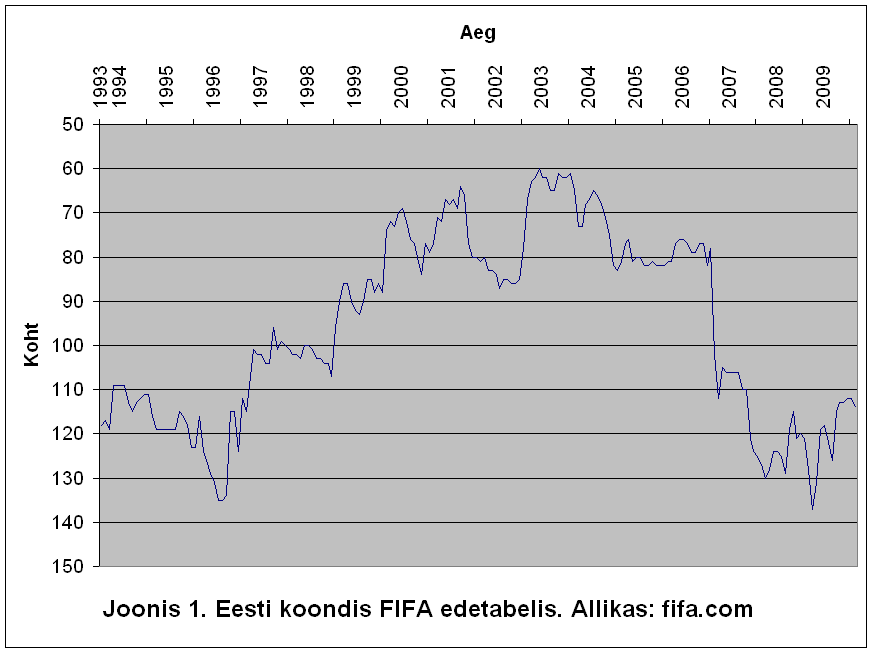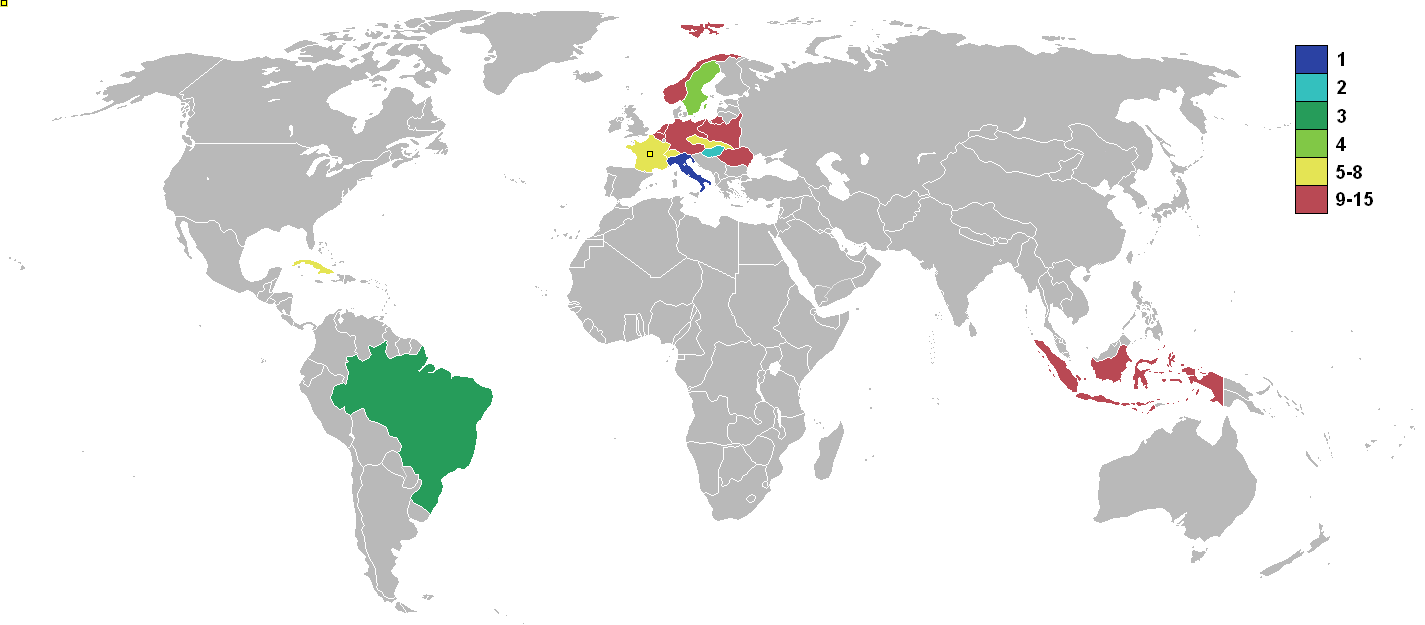|
Ralf Veidemann
Ralf Veidemann (7 January 1913 – 2 February 2009) was an Estonian footballer. He played in 13 matches for the Estonia national football team from 1937 to 1940. He was also named in Estonia's squad for the Group 1 qualification tournament for the 1938 FIFA World Cup The 1938 FIFA World Cup was the third edition of the World Cup, the quadrennial international football championship for senior men's national teams and was held in France from 4 June until 19 June 1938. Italy defended its title in the final, beat .... References 1913 births 2009 deaths Estonian men's footballers Estonia men's international footballers Place of birth missing Men's association football forwards JK Tallinna Kalev players {{Estonia-footy-bio-stub ... [...More Info...] [...Related Items...] OR: [Wikipedia] [Google] [Baidu] |
JK Tallinna Kalev
JK Tallinna Kalev, also known as Tallinna Kalev or simply Kalev, is a football club based in Tallinn, Estonia, that competes in the Meistriliiga, the top flight of Estonian football. The club's home ground is the Kalevi Keskstaadion. Formed as Meteor in 1909, the club changed its name to Kalev in 1911 after joining the Estonian Sports Association Kalev. The club were founding members of the Estonian Football Championship in 1921. Kalev have won three league championship titles, in 1923, 1930 and 1955. The club was re-established in 2002 and has played in the Meistriliiga in 2007–2009, 2012–2014, 2018–2020 and again since 2022. History Early years Kalev's origins lie with Meteor. Jalgpalliselts Meteor (Football Association Meteor) was formed in 1909 by students Julius Reinans and Bernhard Abrams. The team was first coached by a Scottish flax merchant John Stormonth Urquhart who also ordered the team's first uniforms, consisting of blue shirts and white shorts. The team inc ... [...More Info...] [...Related Items...] OR: [Wikipedia] [Google] [Baidu] |
Estonia National Football Team
The Estonia national football team ( et, Eesti jalgpallikoondis) represents Estonia in international football matches and is controlled by the Estonian Football Association, the governing body for football in Estonia. Estonia's home ground is Lilleküla Stadium in Tallinn. Estonia's first match was held against Finland in 1920, being a 6–0 defeat. The team participated in the 1924 Olympic Games tournament, their only participation. In 1940, Estonia was occupied by the Soviet Union and did not regain independence (and the possibility of a national football team) until 1991. Estonia's first FIFA recognised match as an independent nation after the break-up of the Soviet Union, was against Slovenia on 3 June 1992, a 1–1 draw in the Estonian capital city of Tallinn. Estonia has never qualified for the FIFA World Cup or UEFA European Championship. The team has however reached the UEFA Euro 2012 qualifying play-offs, by finishing second in their qualifying group, before being dr ... [...More Info...] [...Related Items...] OR: [Wikipedia] [Google] [Baidu] |
Association Football
Association football, more commonly known as football or soccer, is a team sport played between two teams of 11 players who primarily use their feet to propel the ball around a rectangular field called a pitch. The objective of the game is to score more goals than the opposition by moving the ball beyond the goal line into a rectangular framed goal defended by the opposing side. Traditionally, the game has been played over two 45 minute halves, for a total match time of 90 minutes. With an estimated 250 million players active in over 200 countries, it is considered the world's most popular sport. The game of association football is played in accordance with the Laws of the Game, a set of rules that has been in effect since 1863 with the International Football Association Board (IFAB) maintaining them since 1886. The game is played with a football that is in circumference. The two teams compete to get the ball into the other team's goal (between the posts and under t ... [...More Info...] [...Related Items...] OR: [Wikipedia] [Google] [Baidu] |
1938 FIFA World Cup Qualification Group 1
The four teams in this group would play against each other once. The group winner and runner-up would qualify for the 1938 FIFA World Cup held in France. Group 1 Matches Sweden vs Finland Sweden vs Estonia Finland vs Germany Finland vs Estonia Germany vs Estonia Germany vs Sweden Team stats Head coach: Sepp Herberger Head coach: Carl Linde Head coach: Bernhard Rein Head coach: Ferdinand Fabra Ferdinand Fabra (8 October 1906 – 22 December 2007) was a German Association football, football manager. He coached the Finland national football team, Finland national team from 1936 to 1937 and was the team's manager at the Football at t ... External links 1938 FIFA World Cup qualificationat RSSSF.com {{DEFAULTSORT:World Cup 1 1936–37 in Swedish football 1936–37 in German football 1937–38 in Swedish football Qual 1937 in Finnish football 1937 in Estonian football Qual ... [...More Info...] [...Related Items...] OR: [Wikipedia] [Google] [Baidu] |
1938 FIFA World Cup
The 1938 FIFA World Cup was the third edition of the World Cup, the quadrennial international football championship for senior men's national teams and was held in France from 4 June until 19 June 1938. Italy defended its title in the final, beating Hungary 4–2. Italy's 1934 and 1938 teams hold the distinction of being the only men's national team to win the World Cup multiple times under the same coach, Vittorio Pozzo. It would be the last World Cup until 1950 due to the disruption from World War II. Host selection France was chosen as host nation by FIFA in Berlin on 13 August 1936. France was chosen over Argentina and Germany in the first round of voting. The decision to hold a second consecutive tournament in Europe (after Italy in 1934) caused outrage in South America, where it was believed that the venue should alternate between the two continents. This was the last World Cup to be staged before the outbreak of the Second World War. Qualification Because of anger ... [...More Info...] [...Related Items...] OR: [Wikipedia] [Google] [Baidu] |
1913 Births
Events January * January 5 – First Balkan War: Battle of Lemnos – Greek admiral Pavlos Kountouriotis forces the Turkish fleet to retreat to its base within the Dardanelles, from which it will not venture for the rest of the war. * January 13 – Edward Carson founds the (first) Ulster Volunteer Force, by unifying several existing loyalist militias to resist home rule for Ireland. * January 23 – 1913 Ottoman coup d'état: Ismail Enver comes to power. * January – Stalin (whose first article using this name is published this month) travels to Vienna to carry out research. Until he leaves on February 16 the city is home simultaneously to him, Hitler, Trotsky and Tito alongside Berg, Freud and Jung and Ludwig and Paul Wittgenstein. February * February 1 – New York City's Grand Central Terminal, having been rebuilt, reopens as the world's largest railroad station. * February 3 – The 16th Amendment to the United S ... [...More Info...] [...Related Items...] OR: [Wikipedia] [Google] [Baidu] |
2009 Deaths
This is a list of deaths of notable people, organised by year. New deaths articles are added to their respective month (e.g., Deaths in ) and then linked here. 2022 2021 2020 2019 2018 2017 2016 2015 2014 2013 2012 2011 2010 2009 2008 2007 2006 2005 2004 2003 2002 2001 2000 1999 1998 1997 1996 1995 1994 1993 1992 1991 1990 1989 1988 1987 See also * Lists of deaths by day The following pages, corresponding to the Gregorian calendar, list the historical events, births, deaths, and holidays and observances of the specified day of the year: Footnotes See also * Leap year * List of calendars * List of non-standard ... * Deaths by year {{DEFAULTSORT:deaths by year ... [...More Info...] [...Related Items...] OR: [Wikipedia] [Google] [Baidu] |
Estonian Men's Footballers
Estonian may refer to: * Something of, from, or related to Estonia, a country in the Baltic region in northern Europe * Estonians, people from Estonia, or of Estonian descent * Estonian language * Estonian cuisine * Estonian culture See also * * Estonia (other) * Languages of Estonia * List of Estonians This is a list of notable Estonians. Architects * Andres Alver (born 1953) *Dmitri Bruns (1929–2020) * Karl Burman (1882–1965) * Eugen Habermann (1884–1944) *Georg Hellat (1870–1943) *Otto Pius Hippius (1826–1883) * Erich Jacoby (1885� ... {{Disambiguation Language and nationality disambiguation pages ... [...More Info...] [...Related Items...] OR: [Wikipedia] [Google] [Baidu] |
Estonia Men's International Footballers
Estonia, formally the Republic of Estonia, is a country by the Baltic Sea in Northern Europe. It is bordered to the north by the Gulf of Finland across from Finland, to the west by the sea across from Sweden, to the south by Latvia, and to the east by Lake Peipus and Russia. The territory of Estonia consists of the mainland, the larger islands of Saaremaa and Hiiumaa, and over 2,200 other islands and islets on the eastern coast of the Baltic Sea, covering a total area of . The capital city Tallinn and Tartu are the two largest urban areas of the country. The Estonian language is the autochthonous and the official language of Estonia; it is the first language of the majority of its population, as well as the world's second most spoken Finnic language. The land of what is now modern Estonia has been inhabited by ''Homo sapiens'' since at least 9,000 BC. The medieval indigenous population of Estonia was one of the last "pagan" civilisations in Europe to adopt Christianity fo ... [...More Info...] [...Related Items...] OR: [Wikipedia] [Google] [Baidu] |
Place Of Birth Missing
Place may refer to: Geography * Place (United States Census Bureau), defined as any concentration of population ** Census-designated place, a populated area lacking its own municipal government * "Place", a type of street or road name ** Often implies a dead end (street) or cul-de-sac * Place, based on the Cornish word "plas" meaning mansion * Place, a populated place, an area of human settlement ** Incorporated place (see municipal corporation), a populated area with its own municipal government * Location (geography), an area with definite or indefinite boundaries or a portion of space which has a name in an area Placenames * Placé, a commune in Pays de la Loire, Paris, France * Plače, a small settlement in Slovenia * Place (Mysia), a town of ancient Mysia, Anatolia, now in Turkey * Place, New Hampshire, a location in the United States * Place House, a 16th-century mansion largely remodelled in the 19th century, in Fowey, Cornwall * Place House, a 19th-century mansion on ... [...More Info...] [...Related Items...] OR: [Wikipedia] [Google] [Baidu] |




